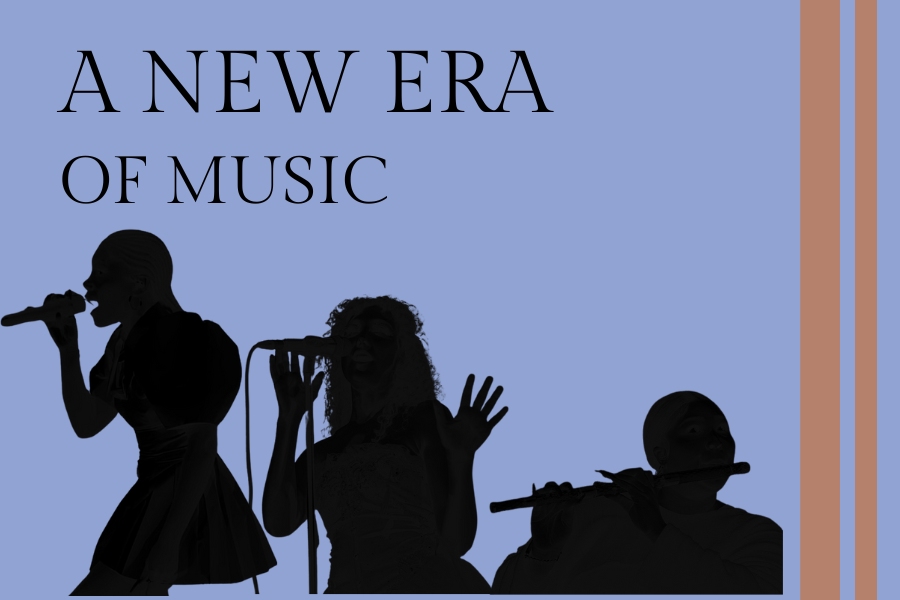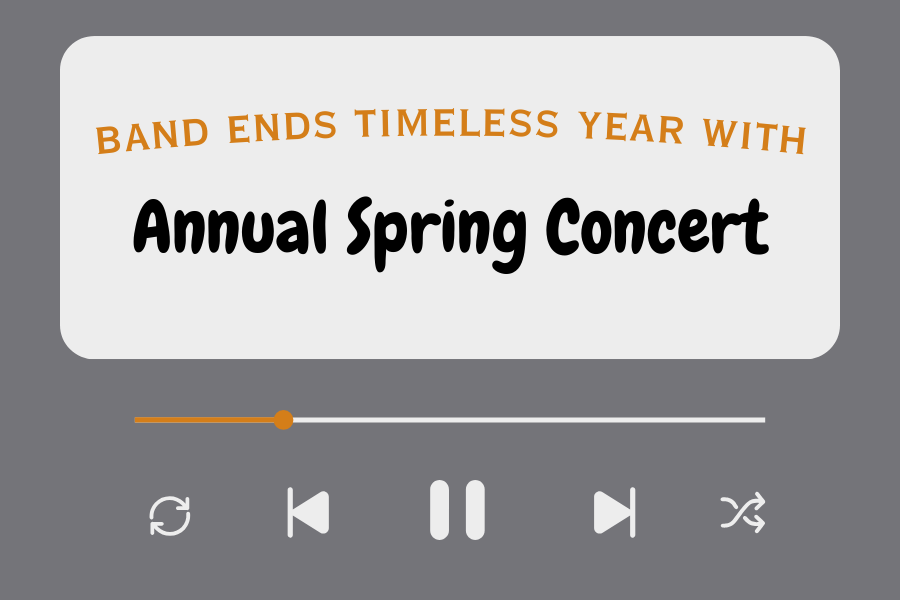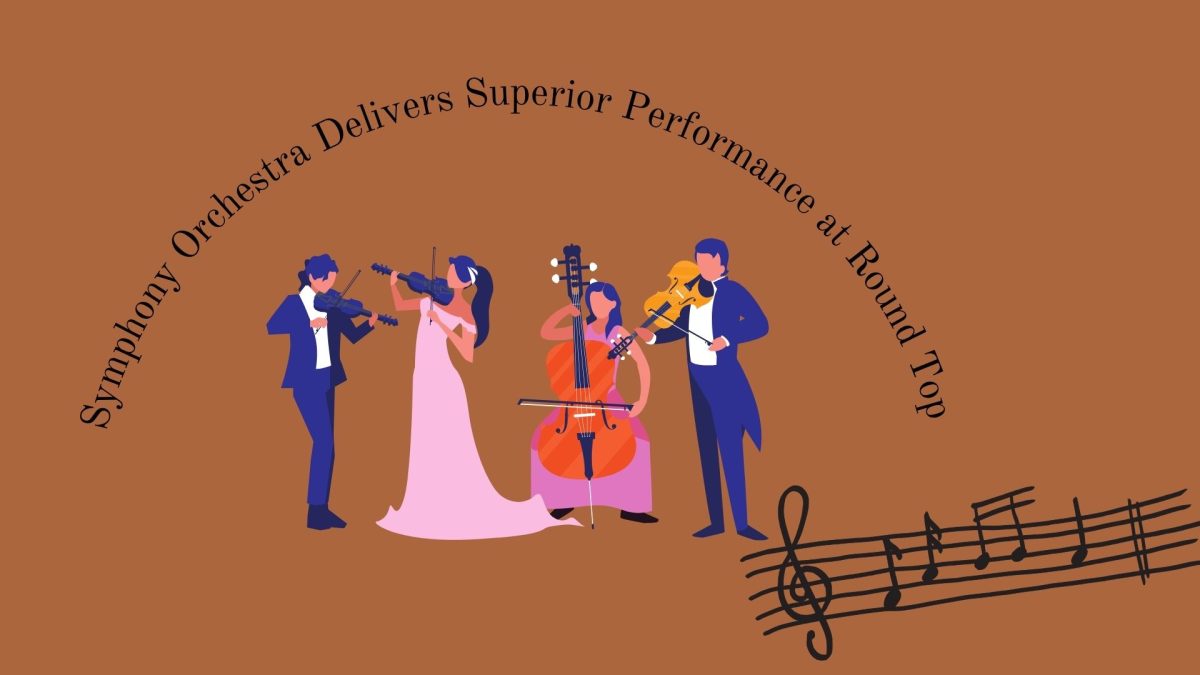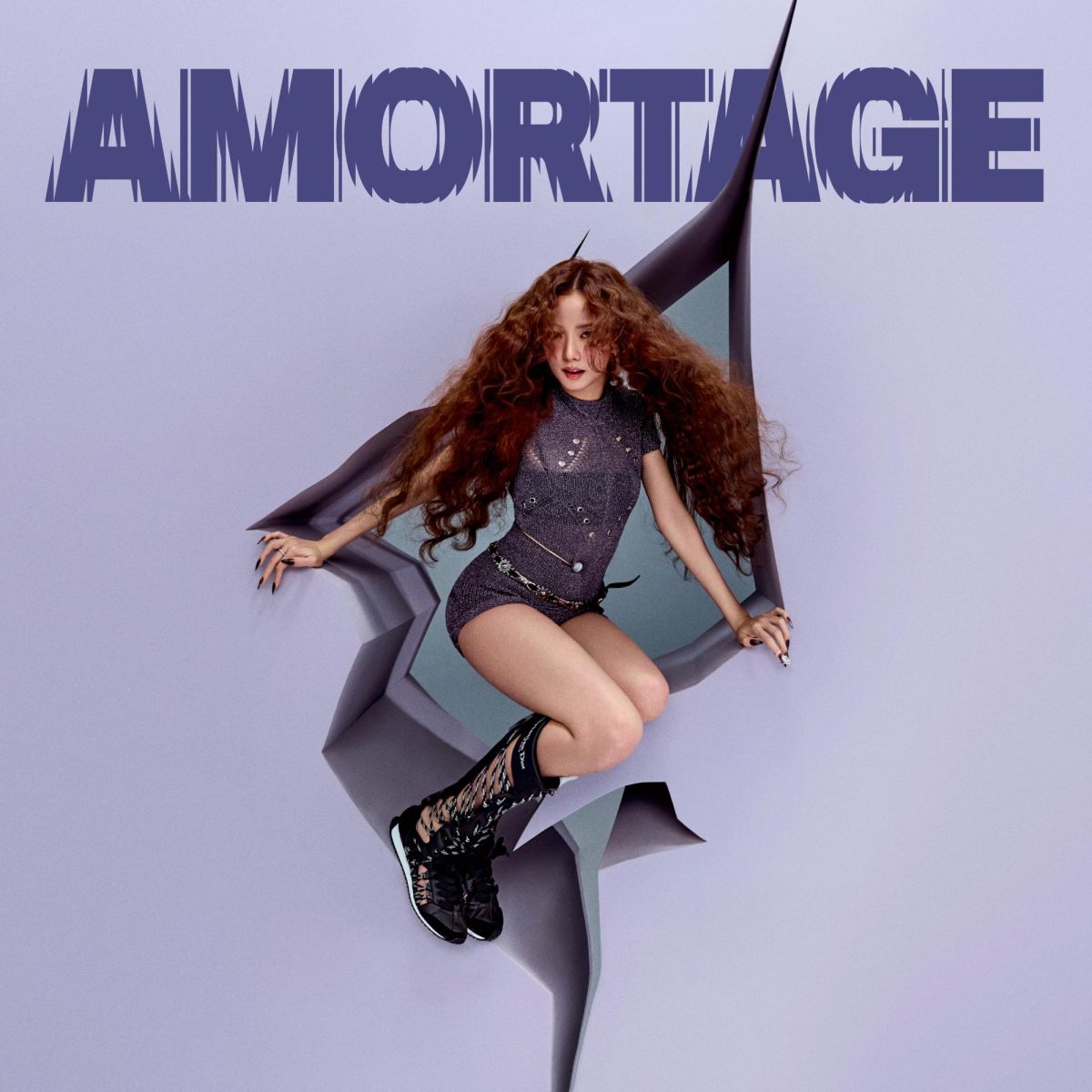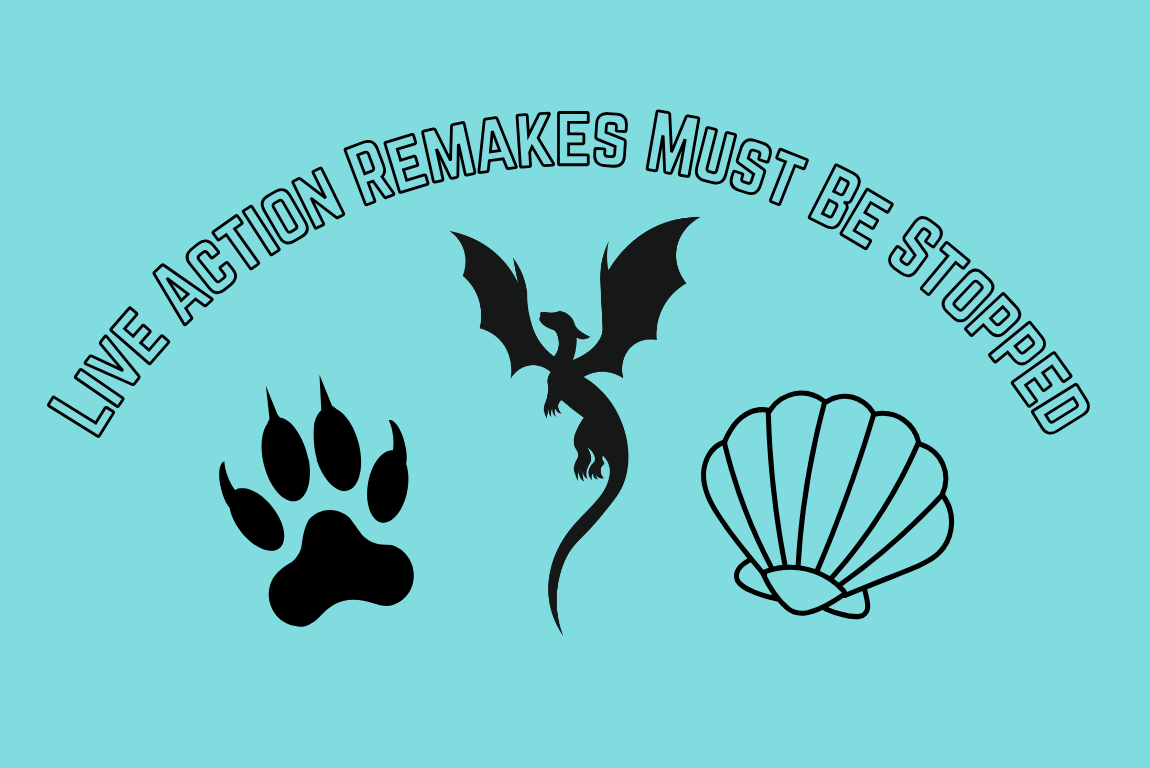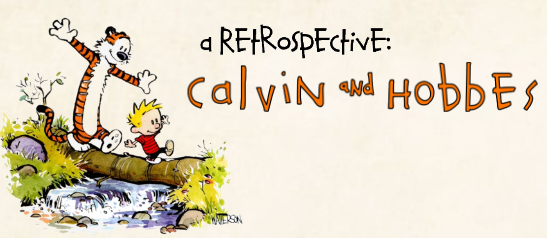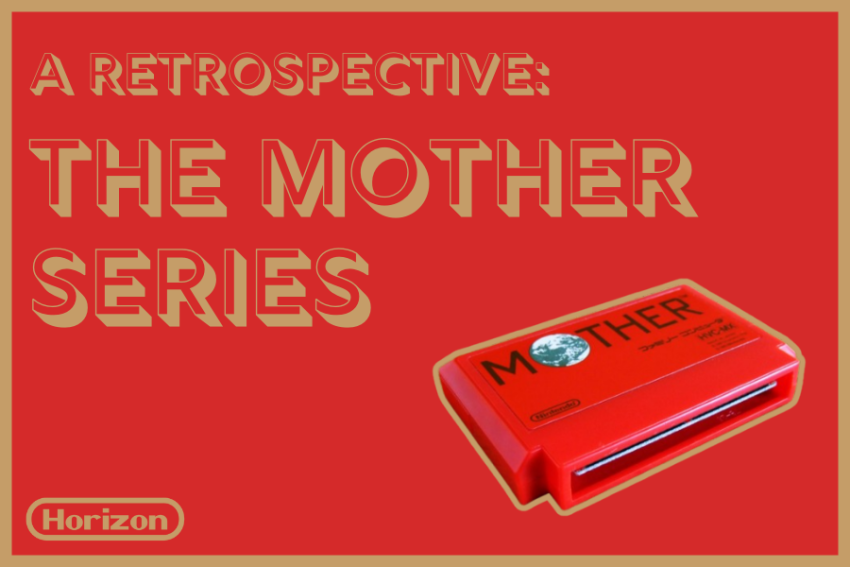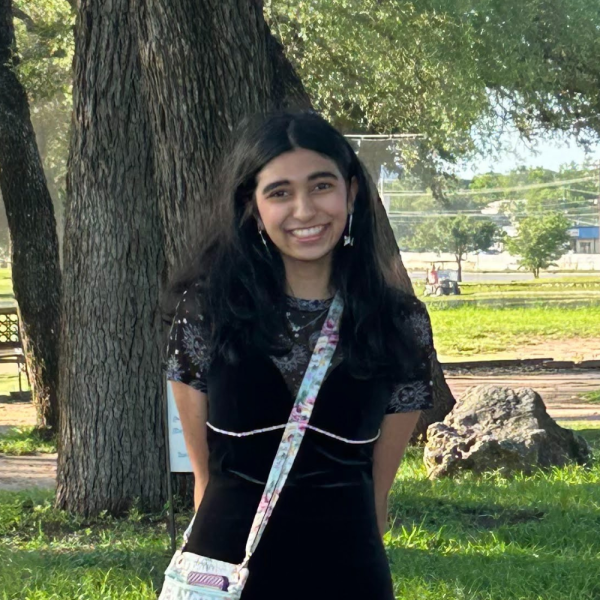The boisterous sound of Chappell Roan’s Pink Pony Club play throughout the Lakeline Mall as hundreds of shoppers, young and old, scurry across the mall to find clothes, food, kitchen appliances, and more. Families frantically gather their kids to go to an Auntie Anne’s in a food court, teenagers shuffle through jeans at Hollister, and children beg their parents for cookies and sweet treats, all to the tune of one of the most socially conscious tracks of the year. This isn’t a one-off event, but rather a broad trend of music becoming more socially conscious.
With artists like Kendrick Lamar having entire stadiums chant along to songs that condemn police brutality, and artists like Doechii winning Grammys for showcasing their emotional vulnerability through their art, it’s clear that music has changed. We seem to be in another cultural renaissance: just like Woodstock and the counterculture movement of the 1960s, the music industry is at a crucial inflection point.
For years, the public has blasted mainstream pop music for being too focused on flashy material goods, and being too detached from reality. Artists’ extravagant dresses at the VMAs and billion dollar private jets have been lambasted for being overly materialistic, and showing a lack of concern for the negative societal consequences their choices have on the environment or on the Global South. Most notably, Taylor Swift received considerable flack from critics for her private jets’ environmental consequences. Swift brushed off responses by buying carbon credits but ultimately, never made meaningful changes to her daily life. It is this indifference that has earned the music industry a bad name in recent years.
“I’ve definitely noticed problematic behavior in pop music,” Annie Curtis ‘26 said. “I think that sometimes it is [forgiven] too easily, especially [when] the artist has a [good] reputation. I think it’s [important] to hold pop artists accountable because they have such a large audience, especially with young people, [because it’s easy to] influence them.”
A prolific commercial success, KSI’s debut single Thick of It charted the Top 100 Billboard with a peak of No. 64. Although the song, filled with internet memes, was made a mockery of by netizens and KSI fans alike, it still charted high on prominent music charts – something many talented yet amateur artists can only dream about. Thick of It was mostly certainly a low-effort cash-grab song, but somehow it was able to garner KSI a larger audience in a matter of days, taking the internet by storm. Whether it be through ego-boosting lyrics boasting his success as a YouTuber, seemingly meaningless lines such as “From the screen to the ring, to the pen, to the king”, or its lackadaisical musical production, Thick of It gained more popularity in a week than Lizzo’s Truth Hurts gained in a year.
Truth Hurts is just one of many examples of good music going unseen; despite its later commercial success, solidifying it as an overall pleasing single to the masses, Lizzo initially struggled to gain a platform despite her emotional, heartfelt, and socially conscious lyrics. Truth Hurts is a relatable, catchy, and emotional ballad that was released in 2017, but was only able to gain traction and propel Lizzo to stardom after its feature in a popular movie. This is a narrative true for thousands of small artists; without help from bigger singers, songwriters, or corporations, it is almost impossible to stand out as a small musical artist among the seemingly endless talent in the field. Given the mockery that Thick of It garnered from the internet, there is no doubt many would argue that Truth Hurts is a better single than Thick of It in production, lyricism, and emotion. However, a combination of numerous factors made Thick of It incredibly successful, including KSI’s platform as a YouTuber, marketing made possible by his deep pockets, and, most importantly, the sheer internet brain rot and superficiality prevalent in the hit debut single.
However, despite the music industry’s reputation for being detached, insensitive, and overly materialistic, in recent years it has slowly become more progressive, with a new wave of musicians spurring a shift towards socially conscious music. This shift is largely due to changing concerns for different demographics. Younger people today are confronted with a multitude of issues. Institutional discrimination, police brutality, poor governance, sexual and gender identity, are just some examples of the issues that Gen Z deal with daily. This amalgamation of complex societal issues leave many craving an outlet to express themselves in order to cope with the trauma these issues can bring. As a result, the music industry has proliferated tens of new artists, all dedicated to surviving the difficulties of the 2020s in their music.
One of the rising stars in this shift towards socially conscious music is pop artist Chappell Roan. Roan is best known for her album The Rise and Fall of a Midwest Princess, an album that delves deep into the intricacies of growing up queer in a society characterized by a climate of anti-LGBTQ+ violence and ostracization. Roan’s music serves as a testament to the challenges LGBTQ+ youth experience daily, especially amidst a growing epidemic of hatred fueled by Trump-era politics and Project 2025.
One of the most notable examples of this is Roan’s hit song Naked in Manhattan, which explores Roan’s experiences with her first girlfriend as she grapples with her newfound identity and all the feelings it brings about. Nevertheless, Roan manages to portray this heavy topic with ease while making the track vivid, fun, and energetic. It’s a stark contrast from years past, where socially conscious artists have had their music rejected by the public for being too real or overly depressing. Roan effortlessly balances making songs that are fun to dance to while also staying socially conscious, spurring mainstream success of music that would otherwise be deemed too “sad,” to warrant being played at clubs and supermarkets nationwide.
“Music is music,” Dhiya Reddy ‘27 said. “If it makes you happy, then it’s a good song. You could like a song that others don’t like, and your songs can be considered shallow. You could consider their song shallow. It depends on what you’re looking for. Obviously, I think deep songs should have more merit but that doesn’t mean that we should not enjoy fun songs.”
In addition to songs about sexual identity, artists like Doechii have achieved massive success for their songs about mental health. Doechii’s album Alligator Bites Never Heal has been lauded for its vulnerability and focus on mental issues that plague younger generations. Most notably, her song Denial is a River investigates substance abuse, the stress placed upon her by the music industry, and issues with insecurity and self esteem all to the tune of a fast-paced hip-hop beat. It’s this ability to make music that balances sheer vulnerability and honesty with energetic, vibrant production that won Doechii a Grammy award for Best New Artist and Best Rap Album of the year.
Both Doechii and Roan have received praise for breaking norms, and redefining what it means to be a popstar. Both artists have been instrumental in reshaping the music space to make it more inclusive for different types of people with different types of struggles, something that was a pipe dream just years ago.
“[In the modern day, artists] love breaking norms,” Deetyaa Shah ‘27 said. “I think it’s awesome because in the past, a lot of [artists] in pop would be the most [problematic] people because they could not recognize the fact that despite being in a competitive setting, they don’t have to push [toxic] values onto younger audiences.”
However, this isn’t the first instance of the music industry making a broad shift towards making more socially conscious music. If anything, the current music scene heavily mirrors that of the 1960s, characterized by the counterculture’s disdain for conservative warmongering in Vietnam, and a broad cultural shift for society. Festivals like Woodstock showcased how a generation of people were seeking grand societal change, and challenging the norms of society all through catchy songs. Songs like Creedence Clearwater Revival’s Fortunate Son and Country Joe’s I-Feel-Like-I’m-Fixin’-To-Die Rag confronted the harsh realities of the Vietnam War and the failures of the government, similar to the way modern artists like Chappell Roan confront sociocultural norms and heteronormativity.
Despite recent strides in the quality and emotion of mainstream music, there are still problems with genres such as pop, hip-hop, and rap normalizing degradation of women, ableism, and homophobia. In an effort to be edgy, many lyricists attempt to casually speak about sensitive and mature topics, often with the intention to portray the artist as strong – which many correlate with hypermasculinity. Controlling women and having a strong finesse over discriminatory vocabulary can often portray an artist as edgy and tough, a vision that has driven many rappers to success.
A prime example of this is The Weeknd’s popular song Lost In The Fire. This song features lyrics that a few have callen out for being objectifying and homophobic. In his lyrics, he implies that a girl who is seemingly bisexual is just “going through a phase” and that he can turn her straight. This is deeply homophobic, and the lyrics objectify women solely for the purpose of cultivating a hypermasculine persona to appeal to an audience. In addition, it further contributes to bisexual erasure, which can be deeply harmful for questioning individuals who want to see themselves represented well in mainstream media. Nonetheless, his status as a popular male musician has given him immunity to claims of discrimination; the excuse of “it’s just music” or “everyone else makes music like that” is shockingly prevalent.
In many music genres, female artists have been attacked on social media for singing about their own intimate experiences in a benign way, including Ariana Grande’s infamous hit 34+35. Despite many of these artists’ lyrics barely coming close to the level of objectification in many hip-hop and rap tracks, they garner hate. However, it is clear in recent years that this trend is shifting. With artists like Sabrina Carpenter, Doechii, Chappell Roan, Charli XCX, and Taylor Swift detailing their intimate experiences in various tracks, their Grammys nominations are proof that society is beginning to become more accepting of female artists expressing their sexuality and identity the same way male artists have for decades.
“I like Sabrina Carpenter,” Reddy said. “I think her lyrics are very good because [they don’t] defame women. They kind of show womens’ perspective and her lyrics are really fresh. Her concept’s really fresh [too]. Her voice is a voice that deserves to be recognized [and] I think she genuinely has good musical talent.”
Furthermore, it’s important to recognize that this spread of socially conscious music isn’t solely because the music industry itself has shifted to push better music, but because listeners have grown tired with the current state of music, and crave something fresh. There are still a litany of problematic songs and artists who enjoy considerable success, despite their lyrics being morally questionable. Though any change is good change, it’s important to recognize that past issues with the music industry are far from fixed.
“I think that [it’s] fans [who mainly] influence what music comes about,” Curtis ‘26 said. “Each time that someone from a less mainstream background [releases] a hit, it opens [up] the [music industry] even more, which is definitely a result of the fans because they do all the listening”
However, this recent increase in more socially conscious music serves as a watershed moment not just for the music industry, but American culture as a whole. We’re in the same boat as we were in the 1960s – society’s shifting, and music will be the first to shift with it.

